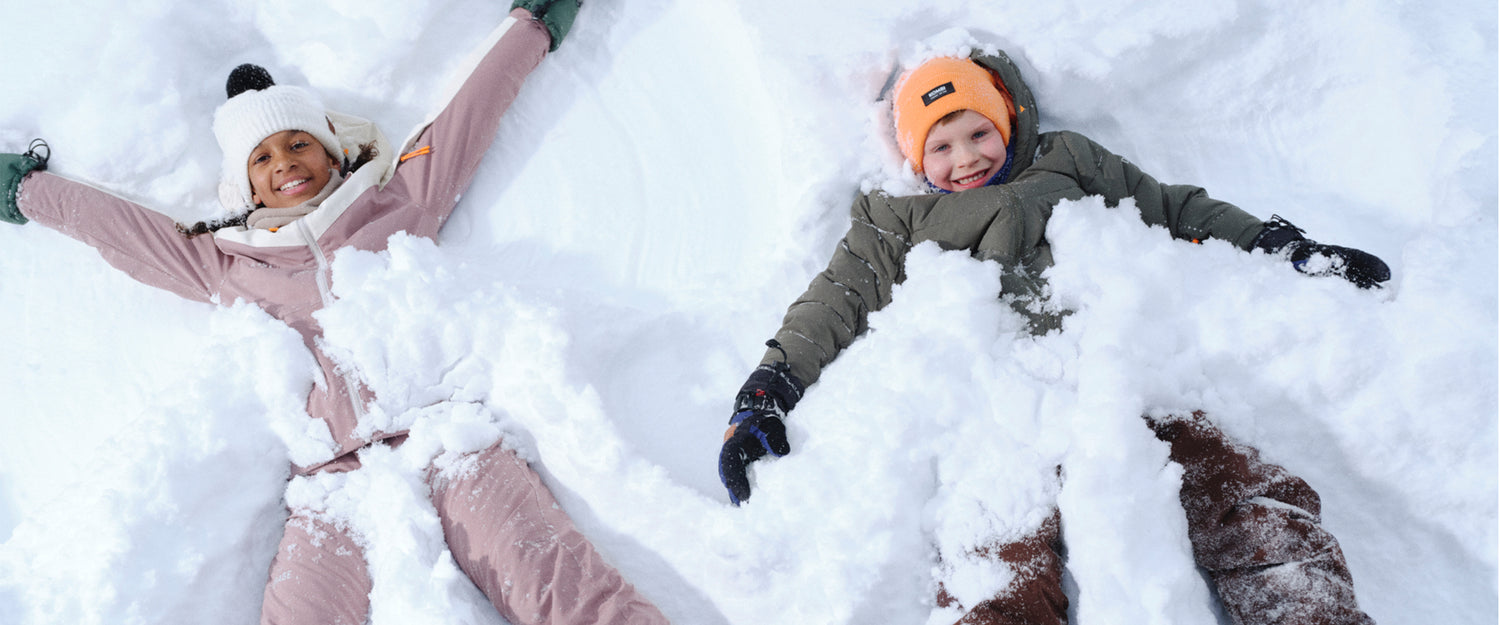The first layer should be a good base layer
A good base layer is the foundation. Since it’s in direct contact with their skin, it should be comfortable. A base layer’s role is to keep your child warm and dry. The golden rule is to avoid cotton at all costs. This material doesn’t create warmth, retains moisture when wet and doesn’t dry quickly.
The main materials used for designing base layers are merino wool and synthetic fibres.
Advantages of Merino Wool
- Temperature regulation
- Naturally soft to the touch
- Anti-odour
- Retains its thermal properties even when wet
- Durability
- Natural fibre
Advantages of Synthetic Fibre
- Quick drying
- Fast moisture wicking

The Mid Layer: An Additional Insulator
The mid layer acts as an insulator. It’s worn over the base layer. It can be either a quilted jacket insulated with down or a synthetic fibre or a fleece shirt or jacket.
When it comes to performance, down is warmer but less breathable than synthetic insulation. The advantage of this insulating layer is that they can wear it in spring and fall as a coat.
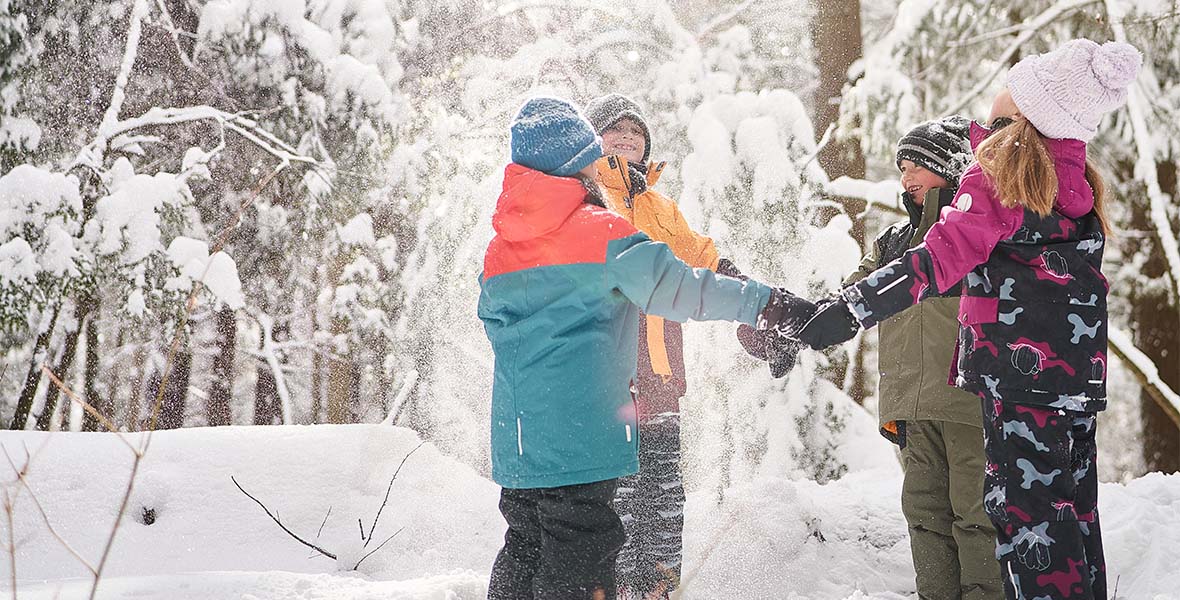
Kids’ Winter Jackets
A winter jacket is the centrepiece. Make sure this part of your child’s winter outfit is well insulated with down or a synthetic fibre. Also keep in mind that just because a jacket is very thick doesn’t mean it’ll be warmer.
New technologies for synthetic fibres are lighter and more streamlined. They do a good job retaining body heat.
Aspects to Consider for a Kids’ Winter Jacket
- Waterproofness
- Breathability
- Insulation type
- Windproof fabric
- Hood
- Adjustments
- Pockets with zippers
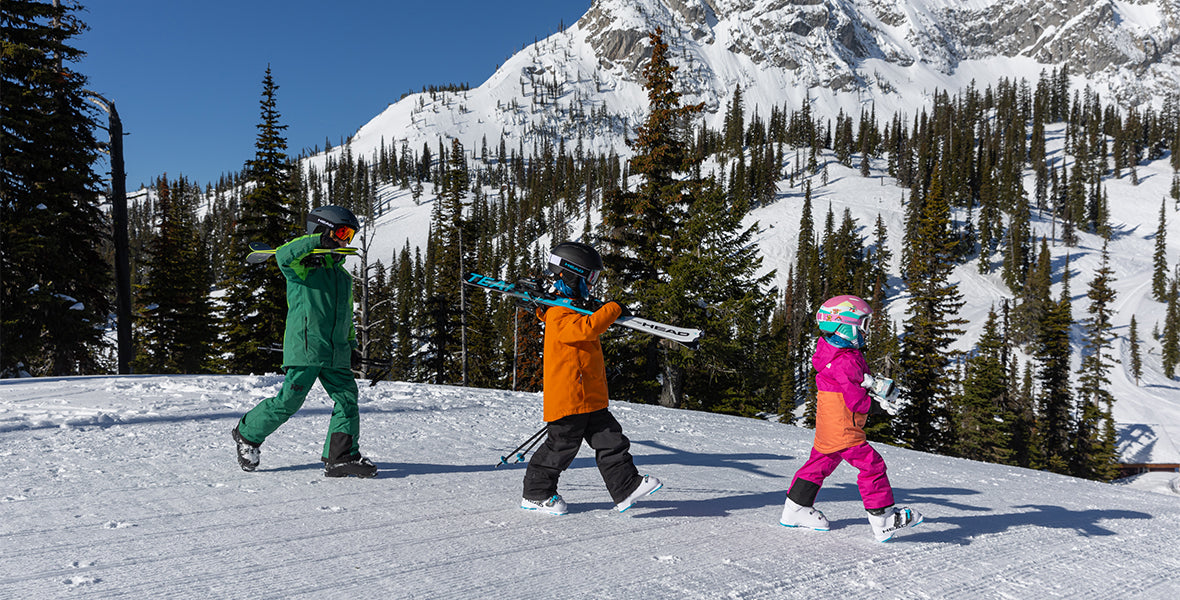
Kids’ Snow Pants
Snow pants are just as important as a winter jacket. They must be well insulated and durable so that your little one can frolic in the snow without holding back. Also, check the fit at the waist so that the pants can keep up with growth spurts during the season.
Snow pants with suspenders are an outstanding choice to complete a winter outfit. They provide excellent protection because they cover the upper body. This fit also provides additional insulation.
Aspects to Consider for Kids’ Snow Pants
- Waterproofness
- Breathability
- Insulation type
- Windproof fabric
- Waist adjustment
- Pockets with zippers
- Fabric reinforcements at the knees
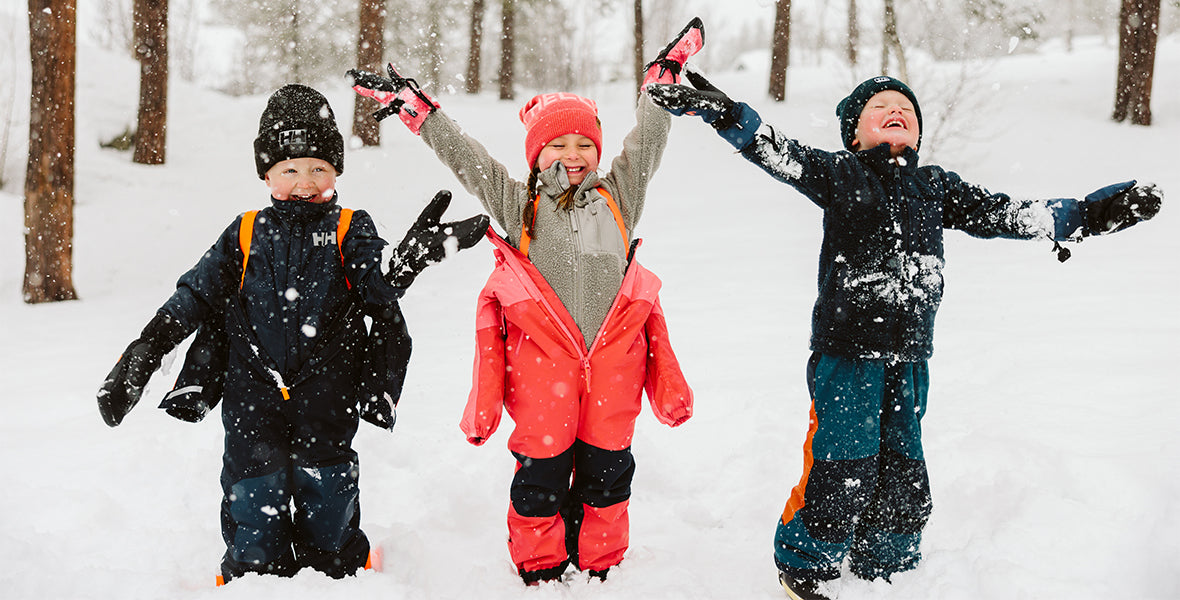
One-Pieces for Children
One-pieces are another great option for your young outdoor enthusiasts. They have the advantage of providing outstanding protection against the cold and snow, which have no gaps to slip through. They trap heat and provide optimal comfort.
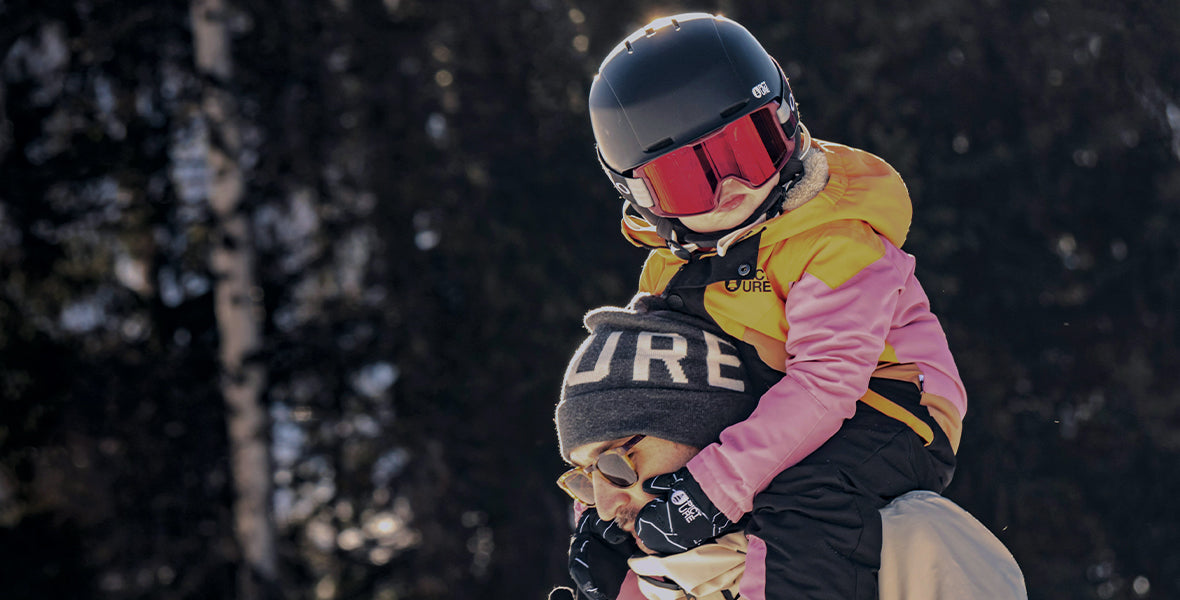
Winter Clothing That Grows with Your Children
Your young ones will keep having growth spurts for a few years. Most kids’ winter clothes feature a system that lengthens the sleeves of winter coats and the bottom of snow pants. That’s an essential feature!
Waterproofness of Winter Clothing
Children’s winter clothing is made for playing in the snow. Since they sometimes spend many hours outside, waterproofness is a critical feature.
Look for waterproofness to be noted on the garment. Clothing that’s only water-resistant isn’t waterproof. Ideally, it will have a waterproof membrane and waterproof coating. That’s the perfect combination.
Friendships are woven together during outdoor adventures. Bundle them up and inspire them to play outdoors!



